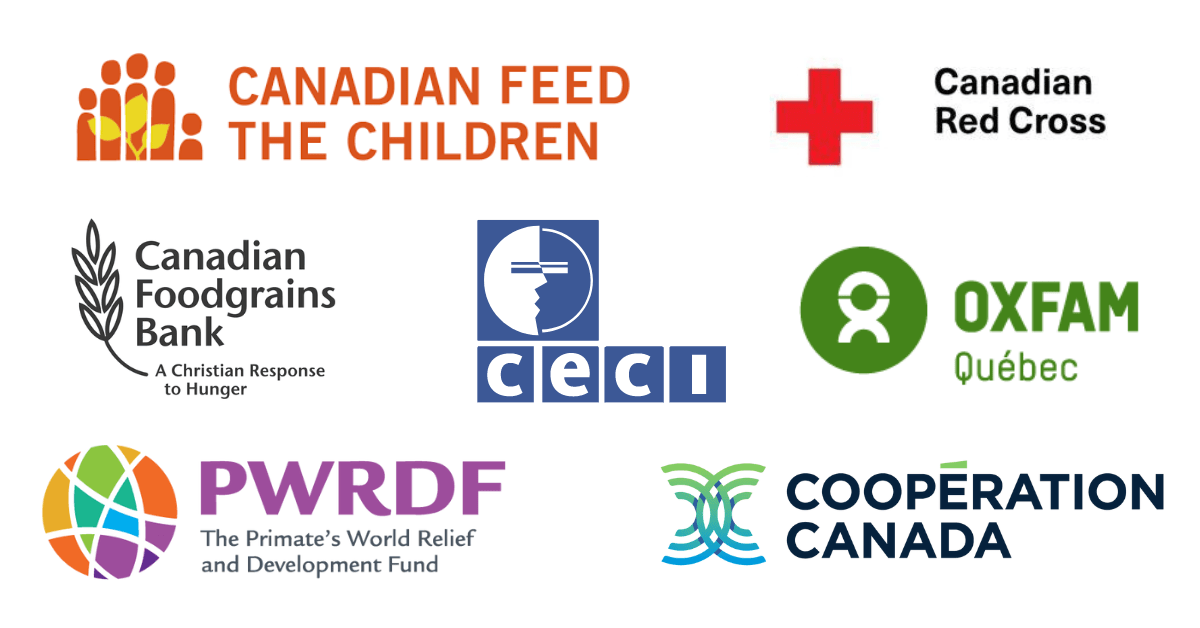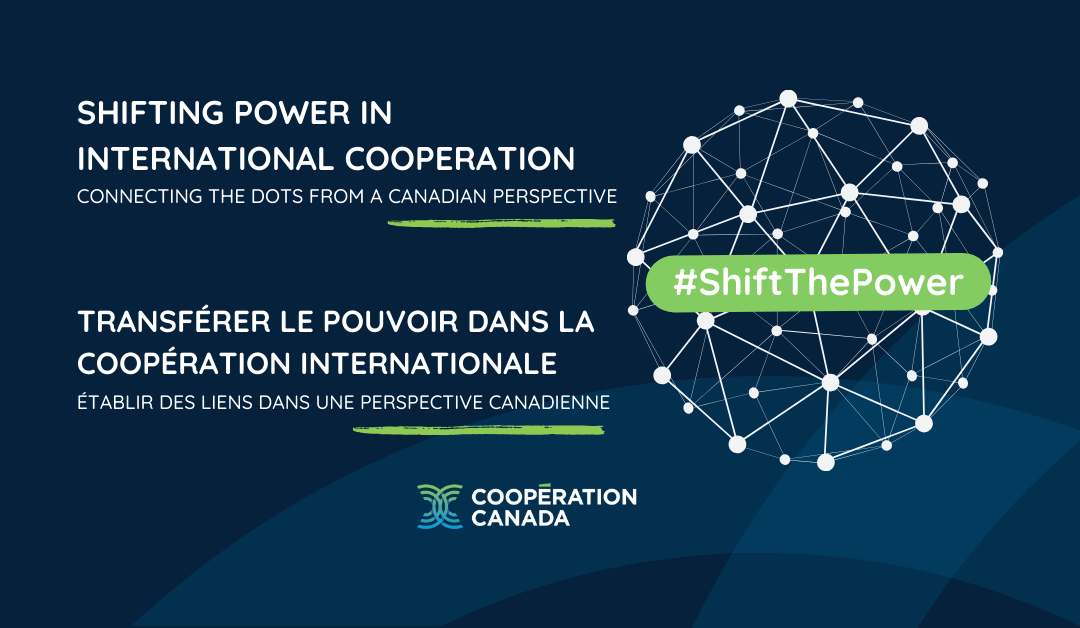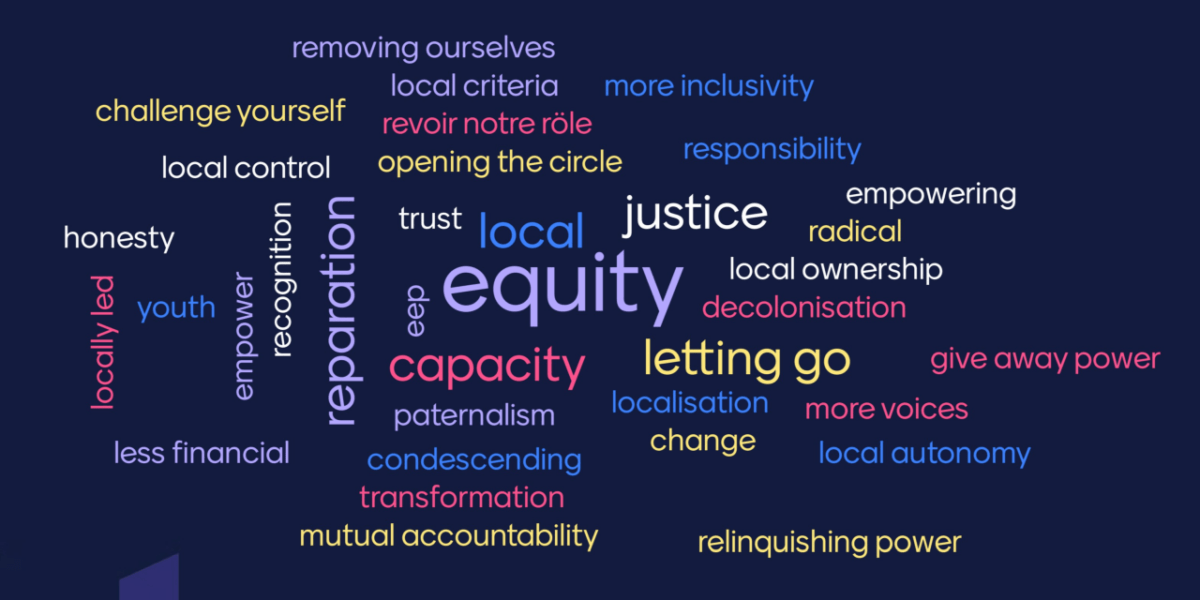On November 20-21, 2023, Cooperation Canada invited its members to discuss ways to move the powershift agenda from words to action. The specific objectives were to provide background and exchange perspectives on issues relating to changing roles for Canadian INGOs in responding to the power shift agenda and brainstorm and generate practical ideas to accelerate the operationalization of the power shift agenda in Canada, including by exploring the idea of a dedicated hub or community of practice.
Prior to the workshop, members of Cooperation Canada had received an advanced copy of the working paper entitled Shifting Power in International Cooperation: Connecting the Dots. The paper defines the key terms and arguments related to shifting power in international cooperation, presents the transforming unfolding in the Global North and the Global South, then describes Canadian actors, among others, are doing to advance the power shift agenda.
The first day of the workshop set the scene on the powershift agenda, starting with participants summarizing the concept of shifting power in two words, as illustrated by the word cloud below.
The morning keynote presentations, moderated by Leila Moumouni-Tchouassi from Cooperation Canada’s Anti-Racism Hub, focused on the effectiveness and ethics arguments underpinning the power shift agenda. First, Andreanne Martel, Director of Spur Change, a program of the Inter-Council Network, presented the main findings from a study analyzing the impact of the Covid-19 pandemic on CSOs’ relationships with their country partners. She reported that pandemic-induced changes revealed effectiveness gains yet did not result in a broad acceleration of localization, noting that it was a missed opportunity to transform practices and mindsets. The second keynote speaker, Themrise Khan, independent development professional and researcher, addressed the ethics argument, posing localization as a contrived term that singles out people and organizations outside Global North countries as locals. From her perspective, shifting power is about giving away and letting go, which goes beyond decolonizing the aid system.
In the afternoon, the moderator, Marlen Mondaca, Vice-President of Programs and Partnerships at Canadian Feed The Children, brought the conversation home, focusing on the Canadian landscape. After an update on the OECD DAC Recommendation on Enabling Civil Society by Brian Tomlinson, CEO of AidWatch Canada, participants heard from Global Affairs Canada about the Grants&Contributions initiative (by Karl Gagné, Director of Policy Integration for the Transformation Initiative) and the plans to develop some policy guidance on localization (by Kim Joslin, Assistant Director at the International Assistance Policy Coordination Division). Following Global Affairs Canada, John Clayton, Director of Programs and Projects at the Samaritan’s Purse Canada, provided an overview of the legislative environment constraining Canadian charities working with non-charities, including country partners. To close the day, participants heard from Nancy Lafrance, Director of the Volunteer Cooperation Program at CECI, how her organization opened Board membership to country partners and moved leadership positions to the Global South, while simultaneously adapting its corporate culture and language.
The second day allowed the workshop participants to engage in interactive sessions, starting with a SWOT analysis of Canadian CSOs. The participants then conducted a visioning exercise about a future support structure (be it a dedicated center, working group or a different model) that would enable CSOs to leverage strengths and opportunities, while filling gaps and addressing threats along the power shift journey. The visioning exercise ended with the group reflecting on the possible functions that a support structure would serve, weighing its benefits against the challenge of funding and sustaining its operation. The group agreed to pursue the reflection through a smaller task force in the coming months. Cooperation Canada is committed to working closely with civil society and across the political spectrum to advance the operationalization of the power shift agenda and translate Canada’s feminist leadership into ethical and equitable partnerships with global actors.
Cooperation Canada would like to thank member organizations who supported this event, namely Canadian Feed the Children; Canadian Red Cross; Canadian Foodgrains Bank (CFGB); Centre for International Studies and Cooperation (CECI); Oxfam Quebec; and The Primate’s World Relief and Development Fund (PWRDF).




